Lessons from Ukraine: Is it time to give up strategic ambiguity in the Taiwan Strait?
The US's long-running policy of strategic ambiguity towards the Taiwan Strait has created a delicate balance on the Taiwan issue, and the US believes that with ambiguity, Beijing will think twice about taking military action against Taiwan, as it can never be sure if the Americans will come to Taiwan's aid. However, with the Ukraine war, some Taiwanese and Americans are questioning the effectiveness of strategic ambiguity. Since Russia has attacked Ukraine without the latter joining NATO, wouldn't Beijing do the same to Taiwan even if the latter does not declare de jure independence? They ask: Isn't it time to review the strategic ambiguity policy?
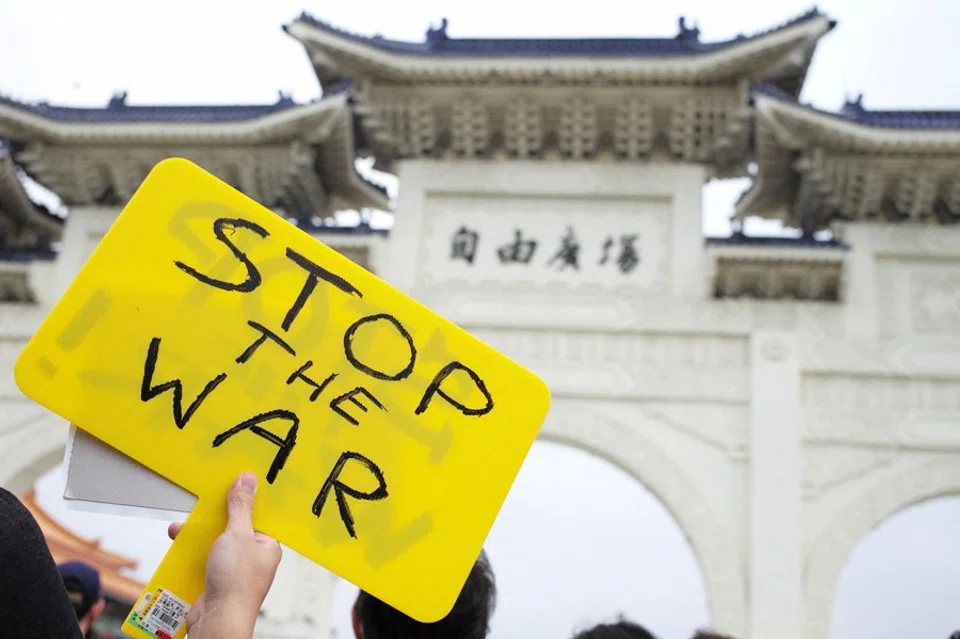
The US has always pursued a policy of "strategic ambiguity" towards the Taiwan Strait, making it unclear whether the US would or would not send troops to intervene if China attacks Taiwan.
Over the past decades, the US has always believed that its vague policy of strategic ambiguity has helped to maintain the delicate balance on the Taiwan Strait issue. This stance serves to confuse both Beijing and Taipei: Beijing, unsure if the US would stand by and watch, would think twice about invading Taiwan; Taiwan, worried that the US would not come to its defence, would not dare to declare independence unilaterally.
Although the mainland China-Taiwan and the Russia-Ukraine issues are not the same, the effectiveness of the US's policy of strategic ambiguity on Taiwan has come into question following Russia's invasion of Ukraine.
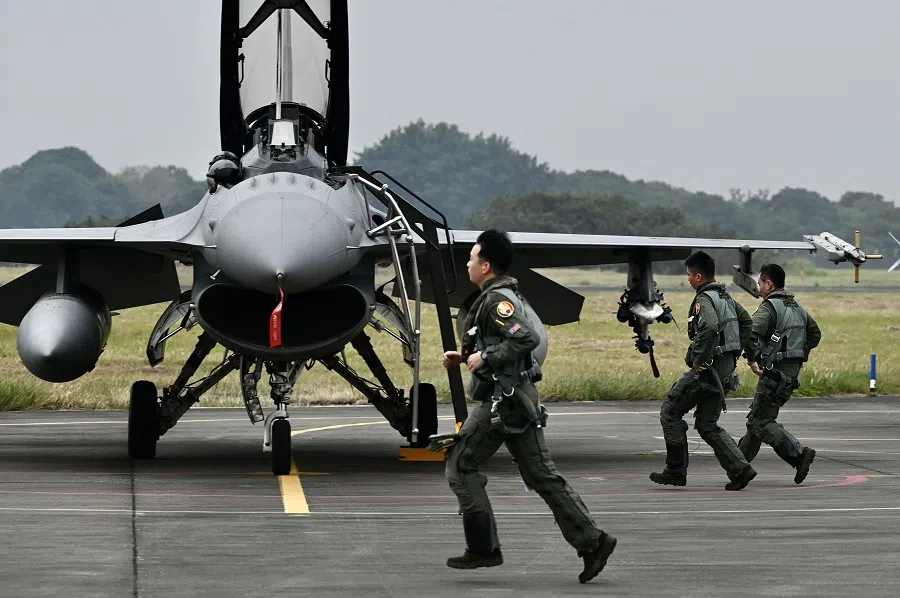
Analysts point out that the Western camp was caught in a security dilemma over the Ukraine crisis. NATO was not prepared to accede to Ukraine's request for membership as it risked crossing Russia's bottom line and triggering a war. But the world could only look on as Russia launched its attack on Ukraine even before the latter gained membership into NATO.
Perhaps from Russian President Vladimir Putin's perspective, if there has to be a war in the end, it would be better to strike first and be sanctioned afterwards. This would be a smaller price to pay than allowing the Americans to deploy troops to Ukraine first.
... strategic ambiguity does not work. Furthermore, isolation makes one susceptible to attacks and weak democracies are dangerous. - Ian Easton, senior director, Project 2049 Institute
Can strategic ambiguity prevent a war?
Shifting the lens from Europe to Asia, since Ukraine was attacked even before it became a NATO member, will Beijing seek reunification with Taiwan by force even before the latter declares de jure independence?
Russia's invasion of Ukraine has cast doubt that the policy of strategic ambiguity can stop a war. On 27 February, former Japanese Prime Minister Shinzo Abe urged the US to ditch strategic ambiguity over Taiwan and make clear that it would defend Taiwan. Chinese foreign ministry spokesperson Wang Wenbin immediately rebuked Abe on 28 February and urged Japan to "stop making provocations".
During an interview with Voice of America (VOA), Project 2049 Institute senior director Ian Easton said that the ambiguity strategy should be adjusted. He pointed out that the core lesson from the Russia-Ukraine war is that strategic ambiguity does not work. Furthermore, isolation makes one susceptible to attacks and weak democracies are dangerous.
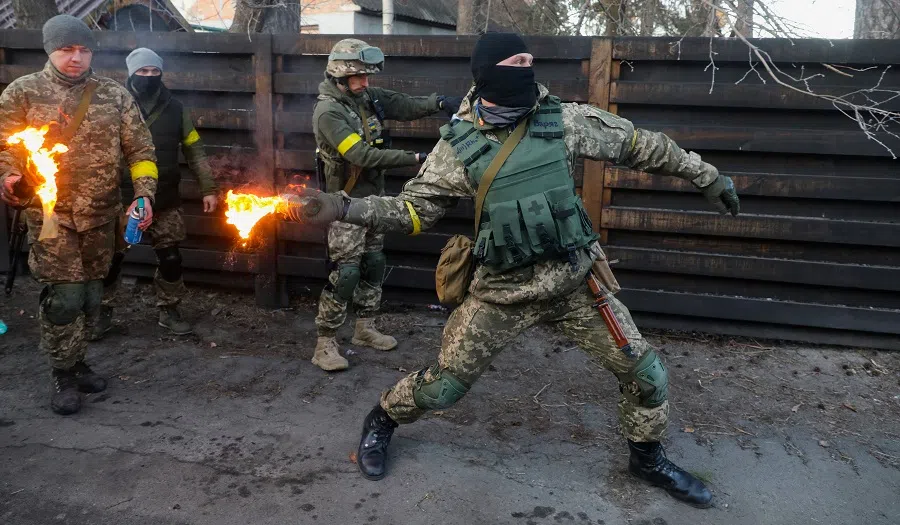
In an article in The Spectator World, Michael Auslin, a Payson J. Treat distinguished research fellow at Stanford University's Hoover Institution, wrote, "When the PLA was a less modernised force, the luxury of strategic ambiguity made sense." He added that now, Chinese President Xi Jinping seems "far more confident in the capabilities of his armed forces". Thus, Auslin believes that strategic ambiguity and walking a fine line may serve only to "inhibit Washington, not Beijing".
Within Taiwan, former Democratic Progressive Party lawmaker Shen Fu-hsiung posted on his Facebook on 2 March that the biggest weakness of the West in the Ukraine crisis is that NATO did not dare to accept Ukraine despite the latter's repeated efforts to become a member. In his view, the problem lies in the fact that the civilised world can only act when there is a legitimate reason, and this is the biggest weakness of strategic ambiguity.
Although the majority of Taiwanese believe that the US will help to defend Taiwan, they are not completely certain. Furthermore, Ukraine's helplessness has only deepened Taiwan's fears. - Shen Fu-hsiung, former Democratic Progressive Party lawmaker
Shen added that in the past, many people believed that strategic ambiguity was beneficial to Taiwan. Beijing would not know how far the US would go to defend Taiwan, and hence would refrain from taking action. However, the Ukraine crisis has proven that this perception is absolutely wrong.
Shen pointed out that if the US shifted to "strategic clarity" instead, the Taiwanese would no longer have to ask if the US would deploy troops to Taiwan in the event of an attack from the mainland or how long Taiwan would have to hold out before help arrived. Although the majority of Taiwanese believe that the US will help to defend Taiwan, they are not completely certain. Furthermore, Ukraine's helplessness has only deepened Taiwan's fears.

Pan-Green Taiwanese academic Lai I-Chung also wrote a commentary questioning the effectiveness of strategic ambiguity for peacekeeping in the Taiwan Strait and for promoting security in Ukraine. In an article published on Voicettank, Lai said that despite Ukraine not joining NATO and the US ruling out sending troops to Ukraine for fear of provoking Russia and escalating the war, Russia has not backed down and has even increased its troops in Ukraine, demonstrating the fact that strategic ambiguity does not work.
Lai pointed out that deterring Taiwan independence to prevent an attack from Beijing and forbidding Ukraine from joining NATO so that Russia would not feel threatened were ways of using possible future political events to deter big powers from taking military action. But these approaches do not spell out clear punitive measures in the event of military action. Thus, said Lai, balance would never be achieved because the problem was not addressed and instead two mismatched issues were placed on one balance scale.
No sign of US adjusting its policy
While calls to abandon strategic ambiguity policy grew louder towards the end of the Trump administration, the incumbent Biden administration has yet to announce that it will adjust this policy. Following the outbreak of the Russia-Ukraine war, American academics and retired generals have urged the government to adjust the strategic ambiguity policy, but as yet, there are no signs that this will happen.
In the 11 February Indo-Pacific Strategy report, the first released since Biden took office, the Taiwan issue was framed in the broader context of regional stability but the principle of strategic ambiguity was maintained.
The report states, "We will also work with partners inside and outside of the region to maintain peace and stability in the Taiwan Strait, including by supporting Taiwan's self-defence capabilities, to ensure an environment in which Taiwan's future is determined peacefully in accordance with the wishes and best interests of Taiwan's people."

The report also said that the US approach would remain consistent with its "one China" policy and its commitments under the Taiwan Relations Act, the Three Joint Communiques and the Six Assurances. These principles form Washington's basic policies towards Beijing and Taipei, and can be grouped in the heading of "strategic ambiguity".
At a global forum organised by the Financial Times on 4 May 2021, White House Indo-Pacific coordinator Kurt Campbell said that the US was unlikely to publicly declare that it would protect Taiwan, as doing so would have "significant downsides". This is as good as saying the US does not intend to adjust its policy of strategic ambiguity.
On 28 February, after the Russia-Ukraine war broke out, Bonnie S. Glaser, director of the Asia programme at the German Marshall Fund, asked Campbell at a forum whether the US should change its policy of strategic ambiguity towards Taiwan. A VOA report states that Campbell reiterated the US's stand in a few simple words: "Consistent, robust, bipartisan and long-standing." In other words, there is no intention to greenlight strategic clarity.
... the US should note that despite current Taiwan President Tsai Ing-wen's stable policies and behaviours, as well as good rapport with the US, subsequent Taiwan leaders might not be the same. - Bonnie S. Glaser, director of the Asia Program at the German Marshall Fund
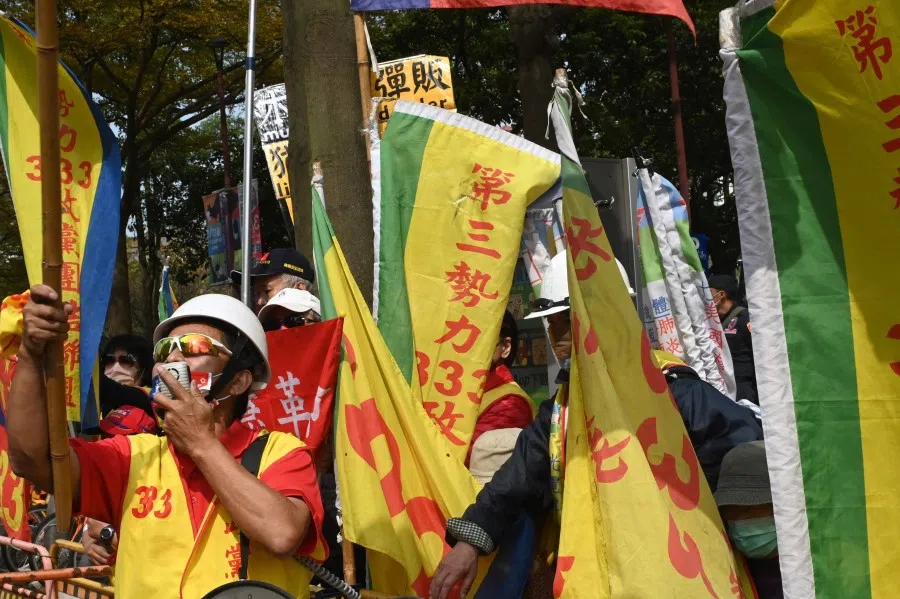
Among the US academic and policy circles, Richard Haass, president of US think tank the Council on Foreign Relations, is one who believes that a firmer hand is needed in dealing with China. In a 2020 Foreign Affairs article, Haass assessed that the US's strategic ambiguity had "run its course" and that the US should pursue strategic clarity that makes explicit that the US would respond to any Chinese use of force against Taiwan.
However, Glaser believes that strategic ambiguity should continue and objects to unconditional military commitments. Without a careful assessment of what kind of threats the US is committing to oppose, this could lead to China going all out and choosing the most straightforward option of military action. Furthermore, Glaser emphasised that the US should note that despite current Taiwan President Tsai Ing-wen's stable policies and behaviours, as well as good rapport with the US, subsequent Taiwan leaders might not be the same.
... the part that is becoming increasingly clear, is a strong warning to mainland China not to take military action, or else the US will engage in military intervention in the Taiwan Strait. - Guo Chung-lun, United Daily News deputy editor-in-chief
Two parts to strategic ambiguity
In an essay published on 3 March, United Daily News deputy editor-in-chief Guo Chung-lun made an observation that the Ukraine war has changed everyone's perceptions, and they may now be inclined to split strategic ambiguity into two parts: the part relating to Taiwan remains unchanged in terms of strategic ambiguity to prevent Taiwan from moving towards independence, while the part that is becoming increasingly clear, is a strong warning to mainland China not to take military action, or else the US will engage in military intervention in the Taiwan Strait.
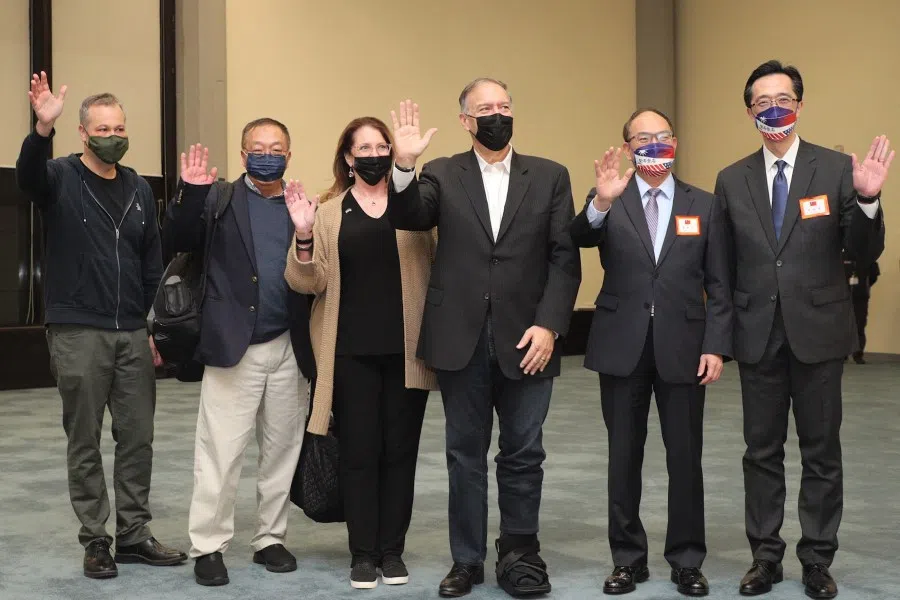
In terms of actual operations, soon after fighting began in Ukraine, the US announced a visit to Taiwan by a delegation of former top US military and security officials. Guo believes that the US was declaring its resolve to defend Taiwan, and that Taiwan and US Indo-Pacific allies need not doubt the US's commitment.
Strategic ambiguity in line with US interests
Last year, US Taiwan Watch released an article noting that from the US perspective, staying ambiguous has been the best move for its national interests over the long term.
The article said that even at this critical point as the US faces a challenge to its dominance from China and is trying to suppress Beijing, there has been no obvious change in Washington's approach. In terms of cost effectiveness, the costs and casualties of war would be far greater than the current containment tactics to exert pressure on China. This is why the US will at most "tweak" its strategic ambiguity, such as emphasising that Beijing will pay a heavy price if it takes military action and continuing to signal that the US will do what is necessary, rather than dropping this strategy at this point or making a clear promise that it will send troops to defend Taiwan.
The article also said that "US-China relations have to be irreparable for the US to end its ambiguity on the Taiwan issue."
... strategic ambiguity is a policy that the US is using to protect its own interests, while the objective of the "one China" policy that the US has followed since 1979 is for the US to maintain its working relationship with Taiwan and mainland China. - Steven Goldstein, associate of the Fairbank Center for Chinese Studies and director of the Taiwan Studies Workshop, Harvard University
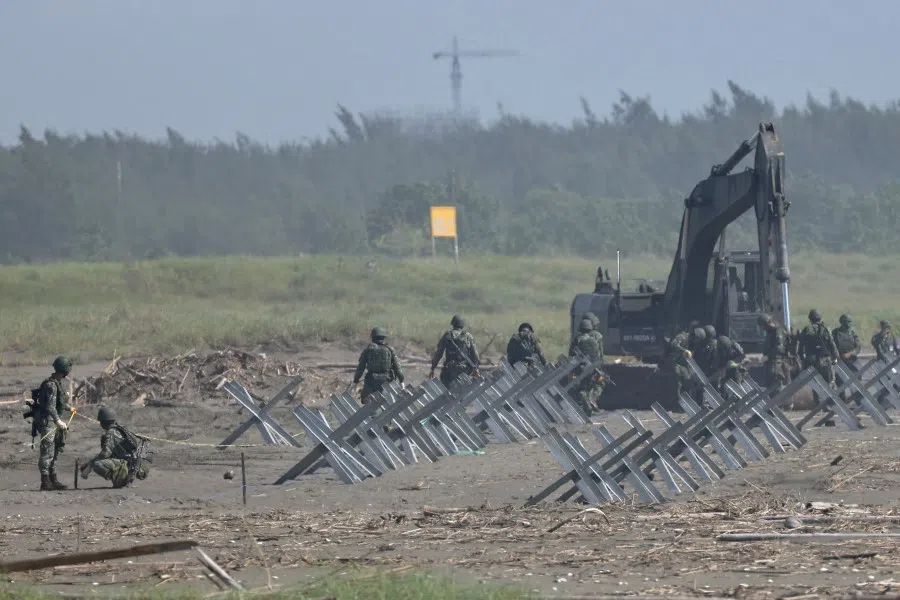
Steven Goldstein, associate of the Fairbank Center for Chinese Studies and director of the Taiwan Studies Workshop at Harvard University, gave a candid reminder that strategic ambiguity is a policy that the US is using to protect its own interests, while the objective of the "one China" policy that the US has followed since 1979 is for the US to maintain its working relationship with Taiwan and mainland China.
He said, "Moving to strategic clarity would be damaging to US relations with mainland China. If strategic ambiguity is appropriately applied to the same effect, then strategic clarity is not something to be considered, at least from the US perspective, if it wants to maintain its working relationship with both sides of the Taiwan Strait."
It can be seen that the US will not easily adjust its policy of strategic ambiguity. If it does make the big decision to do so, it probably means that the tense situation in the Taiwan Strait has escalated to unprecedented levels.
The key takeaway Taiwan should get from the Russia-Ukraine war is not to be unconventional and provocative, to prepare itself mentally and get its own defences ready, rather than continually asking if the US will send troops if the mainland attacks. Heaven knows how the answer will be revealed.





